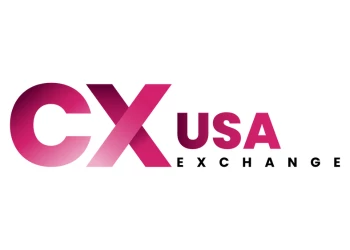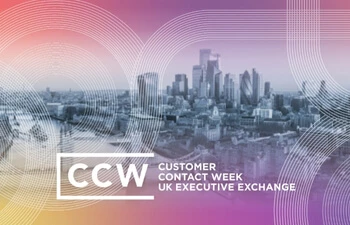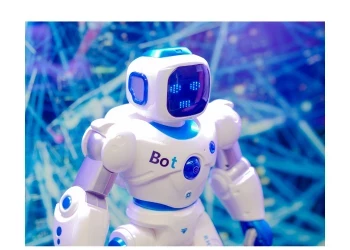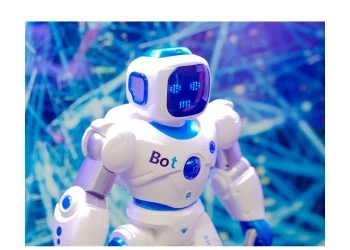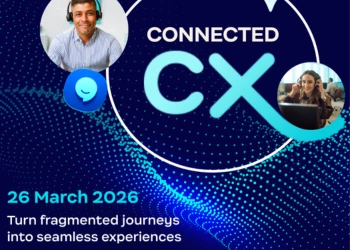How CES 2023 set the pace for CX innovation this year
Microsoft, Delta and the city of Seoul were just some of the names that stole the show at CES 2023
Add bookmark
Customer experience featured heavily at this year's Consumer Electronics Show where a host of exhibitors unveiled their plans to use technology to drive CX in 2023 and beyond.
The event, which took place in Las Vegas in first week of 2023, saw more than 3,000 exhibitors descend on the desert city to show the world how consumer tech is changing.
In this article, CX Network takes a look at five CX-related developments from this year’s show and what they mean for the future of our profession.
Contents
- Delta Airlines harnesses personalization
- Stagwell delivers VR for fan engagement
- Microsoft unveils digital selling architecture
- Seoul outlines city of the future
- L’Oréal’s inclusive beauty tech
Delta Airlines harnesses personalization
Delta Airlines’ most loyal passengers will soon be able to enjoy “cross-journey personalization” as the airline taps one of this year’s biggest trends: individualization.
Delta Sync will see the airline create a “new standard of personalized travel, with an ecosystem of experiences” for members of its Delta SkyMiles Membership program. Delta Sync launches this year and will give members early access to elements of Delta’s future travel experience.
It starts with fast, free, inflight Wifi, which will be introduced on most domestic mainline flights from February 2023. Then there is the Delta Sync Exclusives Club, which brings other leading brands into the entertainment and content element of the passenger experience. This includes destination and restaurant guides, games from the New York Times and free streaming.
Addressing the show floor Delta CEO Ed Bastian said: “Delta Sync elevates what it means to be a Delta SkyMiles Member by enabling a journey that fits you perfectly and grows more rewarding the more you travel.
“The future of travel is one where your digital and physical experiences come together in a seamless, warm and personal way, making those human travel connections even more meaningful.”
Stagwell delivers VR for fan engagement
It’s safe to say VR was a recurring theme at CES 2023 and Stagwell demonstrated how it can be used to enhance the fan experience.
One of three new developments announced by Stagwell, ARound is a shared augmented reality (AR) platform for stadiums, which uses 3D spatial computing to map large-scale venues and localize content to individual users.
This enables attendees to see the same real-time 3D effects and participate in the same shared experiences. Think Pokemon Go, but for sport.
Stagwell says it enables brands to reach fans at scale with stadium-wide AR games, contests, effects, and a remote experience amplifying the energy and excitement of gamedays. It is already being used by the Minnesota Twins MLB team at Target Field and the Los Angeles Rams at SoFi Stadium.
Further developments around the fan experience saw Sony unveil a proof of concept for virtual fan communities in collaboration with Manchester City FC.
Microsoft unveils digital selling architecture
Most people realize the benefits virtual reality (VR) will bring to future buying experiences, but the technology must be more widely adopted. Supporting that step, Microsoft unveiled its digital selling architecture.
With a focus on the automobile industry, the architecture can provide manufacturers, dealers and mobility service providers with a framework that enables “new digital customer engagement models” to enhance – not replace – in-person interactions.
It is part of how Microsoft plans to reinvent the customer journey and it is currently working with Sitecore, Touchcast and Annata to drive excellence in omnichannel fulfillment, immersive and virtual user experiences and end-to-end process coverage.
Working with Touchcast, Microsoft launched the FIAT Metaverse Store in early December. This gave prospective FIAT owners the chance to see and experience the vehicle remotely – including its entertainment system. While it cannot replace the test drive, it is certainly driving advances in the customer experience.
Microsoft’s global chief strategy officer of mobility, Henry Bzeih, explains more in this video.
Related content: Why AI and omnichannel go hand in hand
Seoul outlines city of the future
The Seoul Tech Pavilion featured more than 50 private sector innovators that exhibited together to demonstrate smart advances in the public sector. It marked the first time a city had exhibited in the main halls of CES and Seoul certainly stole the show.
Under the theme Seoul: Smart Transportation City, Eco-friendly City, the focus was on citizen, rather than customer, experiences. Seoul Business Agency (SBA) demonstrated how drones, monitoring technology and connected transport can be integrated into future, connected cities. Innovations focused on mobility, bio and healthcare, ESG, manufacturing and data.
Hyunwoo Kim, CEO of SBA, said: "SBA has been able to effectively present Seoul's futuristic lifestyle that smart mobility and ESG technologies are creating on the global stage at CES 2023."
Other smart city advances were displayed by US company Ekin, which developed Ekin Spotter. The tool gives public sector agencies and law enforcement providers data analysis capabilities that can improve city planning, traffic management, public safety and environmental protections.
Related content: Why personalization is crucial for CX success
L’Oréal’s inclusive beauty tech
While not technically part of the customer experience, L’Oréal’s commitment to inclusive user experiences saw it launch HAPTA, a world-first handheld computerized makeup applicator designed for users with limited hand and arm mobility.
“Inclusivity is at the heart of our innovation and beauty tech strategy,” said Barbara Lavernos, deputy CEO in charge of research, innovation and technology at L’Oréal. “We are dedicated and passionate to bring new technologies powering beauty services that augment and reach every individual’s ultimate desires, expectations, and unmet needs.”
HAPTA incorporates technology originally created by Verily to stabilize and level utensils and allow people with limited hand and arm mobility to eat independently. Initially, L’Oréal will apply this tech to a lipstick applicator, with more makeup applications enabled in the future.
“For years, Lancôme has sought to provide every woman with beauty solutions adapted to their needs. Beauty tech has enabled us to fulfill this mission in an even more powerful way, revolutionizing the way we develop beauty products and services and enabling greater personalization,” said Françoise Lehmann, global brand president for L’Oréal’s Lancôme.

